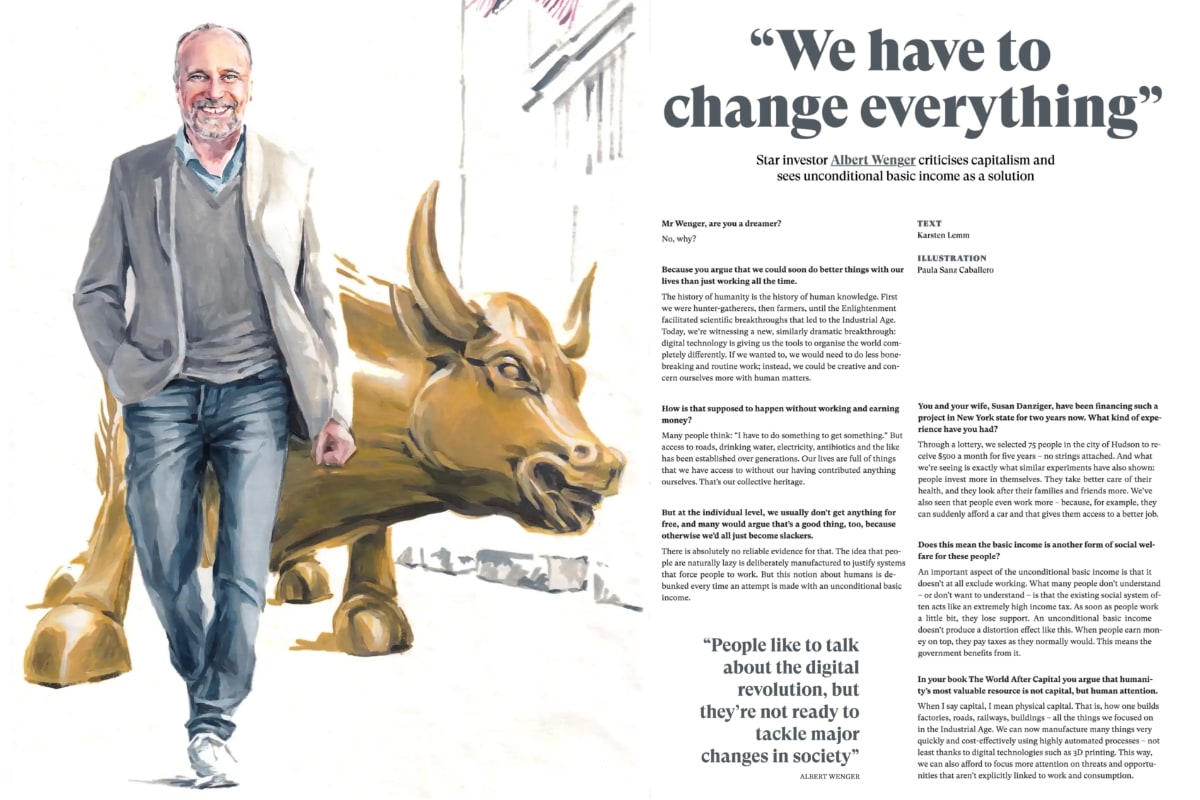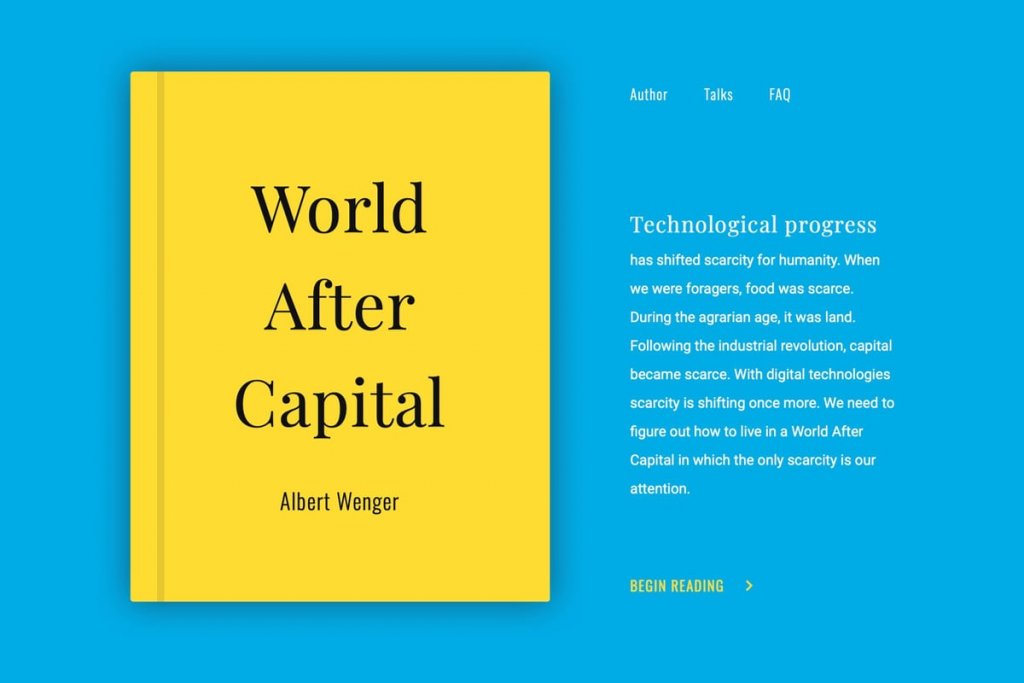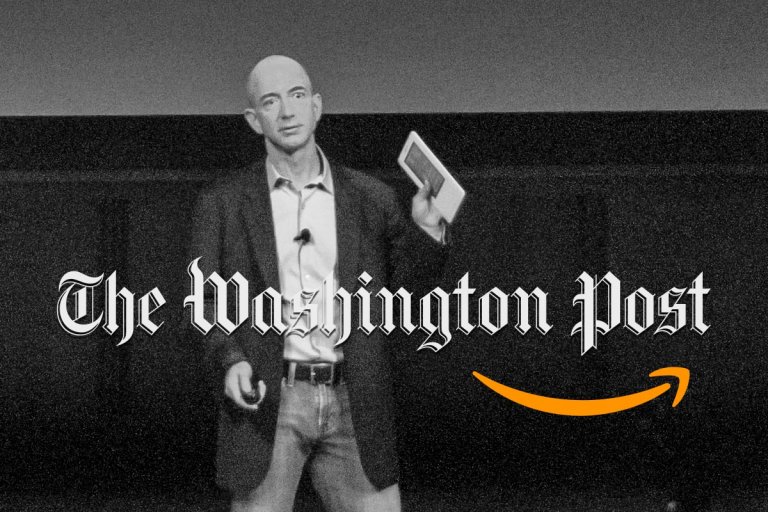
Life is work, and work is life. That’s been true for most people for much of history, particularly since the Industrial Revolution. And if you’re passionate about what you do for a living you may love your 60-hour weeks and skinny weekends. But if your job means toiling away just to put food on the table it becomes a problem – on an individual level and for society as a whole.
Venture investor Albert Wenger has long been a proponent of a Universal Basic Income. His argument (tl;dr version) goes something like this: For the first time in history, he says, there’s a chance to leave many arduous, repetitive or dangerous tasks to machines – freeing up humans to concentrate on things that really matter.
“Many issues deserve our attention, but there’s no market incentive for them”, Wenger told me in an interview for WERTE magazine.
“Why did the pandemic take us by surprise? Previous virus outbreaks provided us a warning, but we failed to prepare for something worse. This is similar to the climate crisis or with meteorites on a collision course with Earth. We readily ignore such dangers. Simply because we’re now at a point when we regulate everything through market mechanisms.”

Why would a venture capitalist, of all people, turn away from capitalism? And suggest that government should hand out money to every single citizen, no questions asked?
Read the full interview to find out. Wenger also explains why a Universal Basic Income (or UBI) does not turn people into slouches, contrary to popular belief, and why the current social system “often acts like an extremely high income tax”.
To dive deeper you may want to take a look at Wenger’s book World After Capital, which is free to read in any browser. He also laid out his arguments in a couple of highly engaging DLD sessions that you can view here – assuming you’re not too busy with work.

